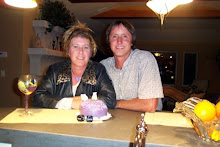Swami Vivekananda presented the talk, Real Religion at the World's Parliament of Religions in 1893. With this speech, he introduced Vedanta (AKA Hinduism) to the West. It is more than 100 years later and the Christian West continues to struggle with the world's religions. This is a brief opportunity to comment on Vivekananda's speech.
"Religion does not consist in doctrines or dogmas." What simple and wise words. However, the religion of the West, Christianity, is devoted to its doctrines and dogmas. Doctrines about Christianity as the exclusive path to salvation are the roots of Christian evangelization and, sadly, of Christian intolerance. Such intolerance extends to the ends of the earth. The Catholic hierarchy, for example, sets its gaze upon every religious tradition and judges. The proselytizing view of the Catholic Church and all of Christianity, peruses its own house. In Catholicism, for example, Catholic theologians who dare to present theological arguments for salvation in religions other than Christianity are silenced, taken from teaching positions, indexed.
I agree with Vivekananda. Doctrine is not the same as the experience to which doctrine points. God-realization cannot be achieved by reading doctrines or encyclicals. The Christian Testament points to a reality that must be experienced. The purpose of the Gospels, for example, is to encourage faithful to embark on a journey home to God and to portray the unfathomable source of pure love that is God. But, the words are not the journey. "The raft is not the shore." If you meet the Buddha on the road, kill him.
This does not mean that doctrines, dogma, sacred texts are disposable and without real spiritual value. I merely suggest that the source of strife among the peoples of the world is inordinate reliance upon religious teachings at the expense of emphasis upon an experience of God and the consequent comprehension of the interrelationship among all people and the cosmos.
For religious leaders in any religious traditions, why is it so incomprehensible to agree with Vivekananda: As soon as a man stands up and says he is right or his church is right and all others are wrong, he himself all wrong. Of course, in order to be consistent, I suppose I must admit that I could be wrong.
Sandi Fults has a Master's degree in Systematic Theology from St. Mary's University in San Antonio, Texas. She also attended the graduate Middle Eastern Studies program at the University of Texas at Austin. Her area of specialization is Interreligious Dialogue and the world's religions, with emphasis on the South Asian Hindu and Buddhist religious traditions. She is convinced that interreligious dialogue is a way to peace.
Amit Goswami
No comments:
Post a Comment